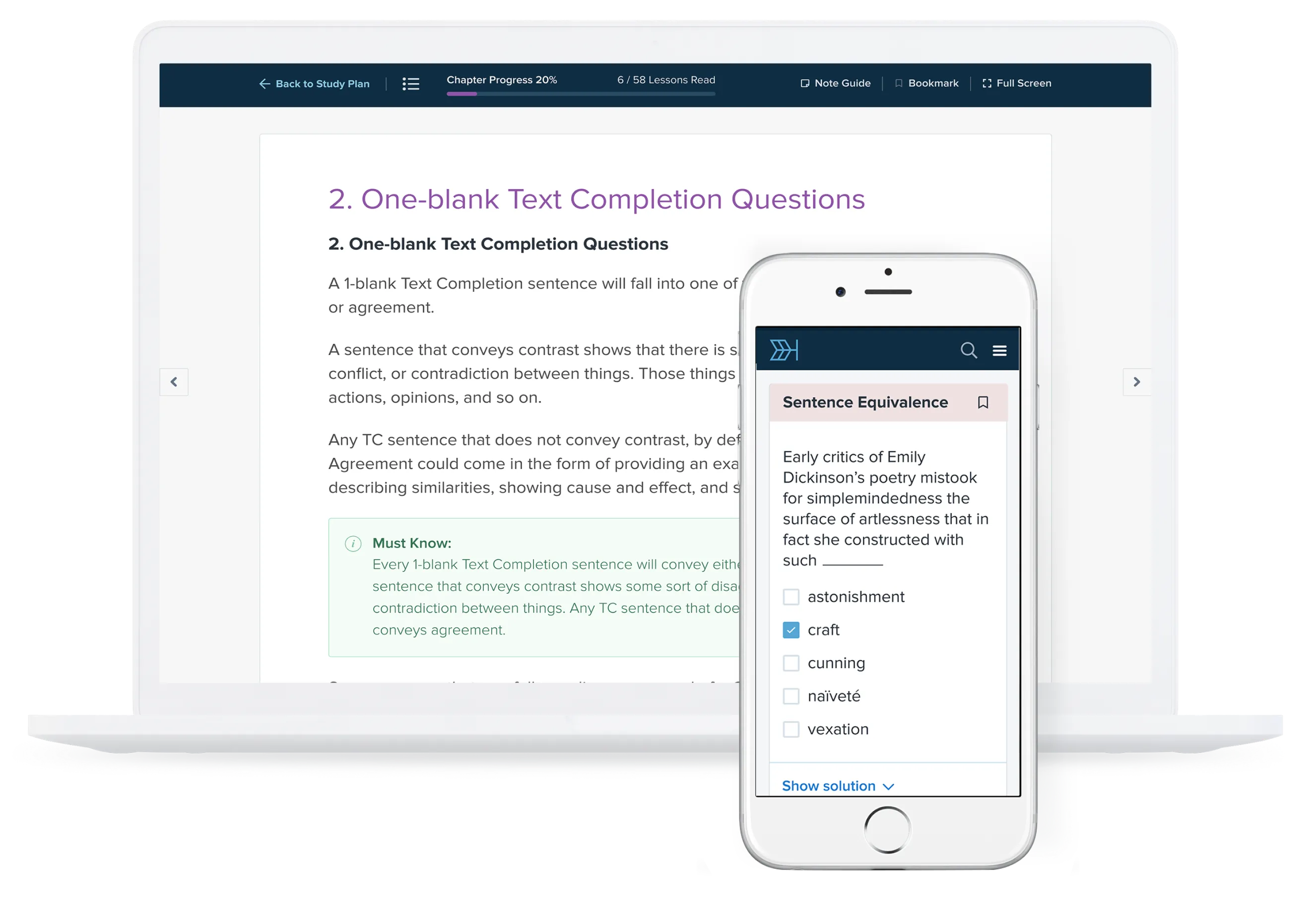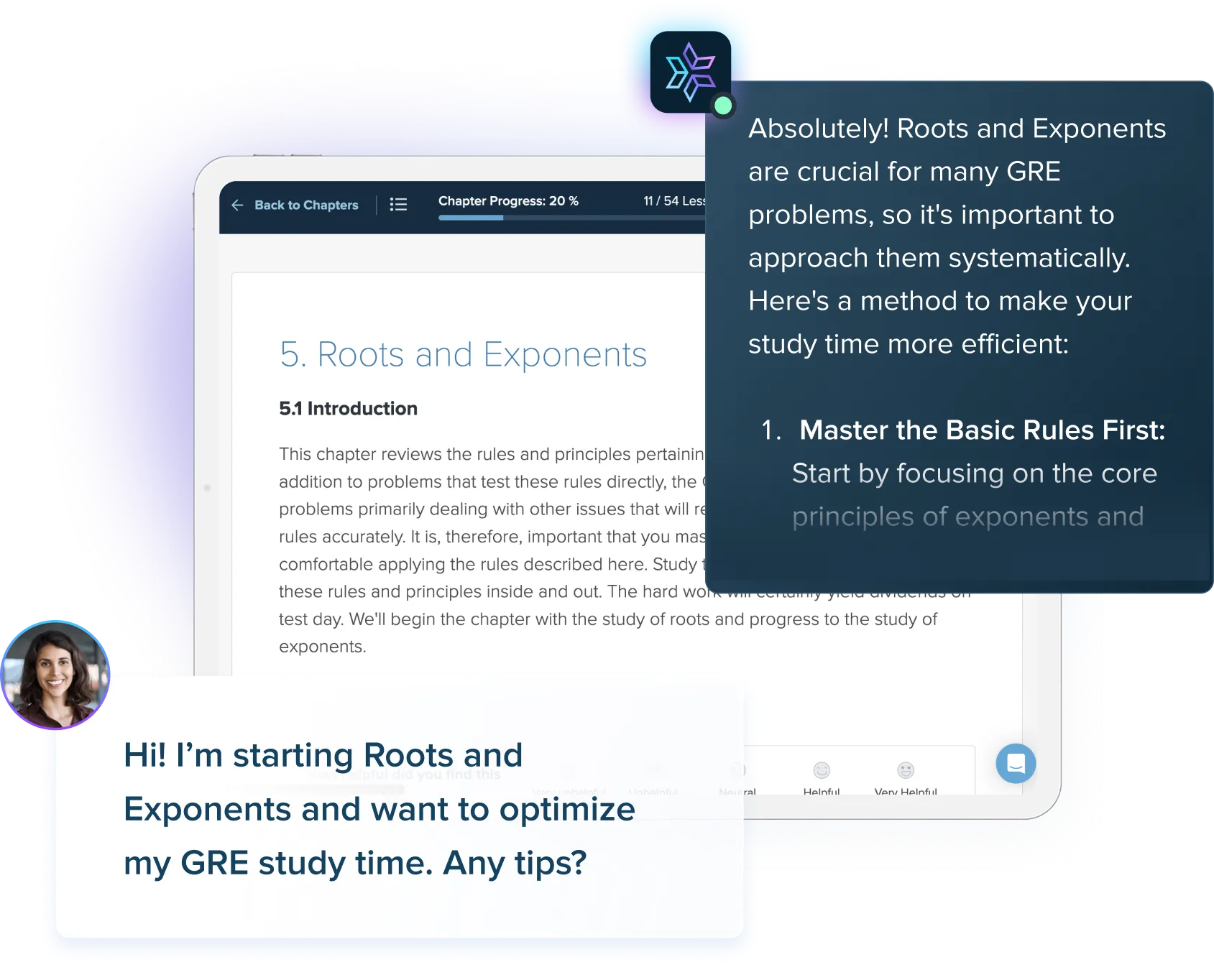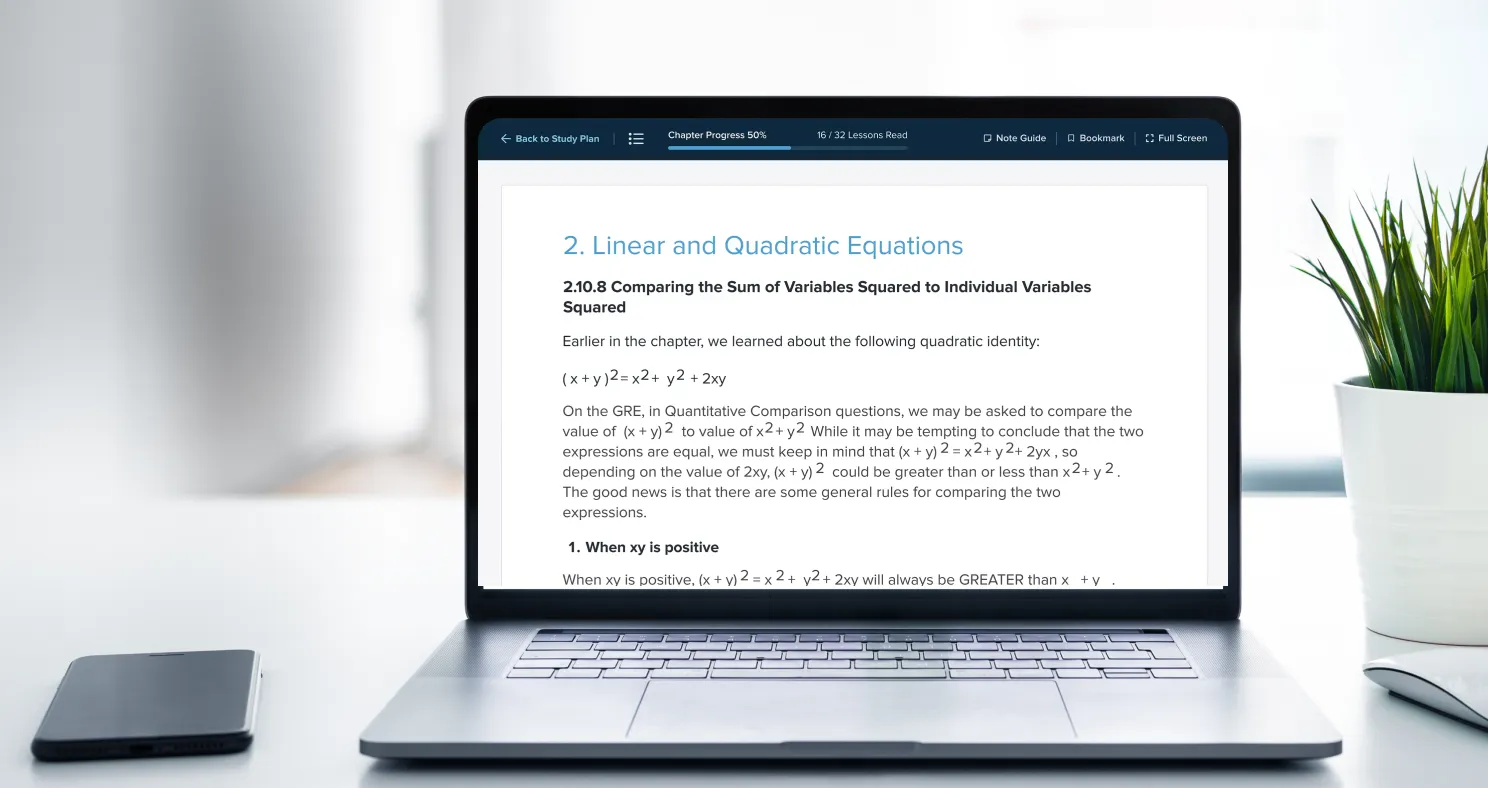Text Solution:
Looking at the stem, we see that the focus of the question is “the 2017 study from the McCombs School of Business.”
So, to find the information we need for answering the question, we can look for the keyword “2017” and capitalized phrase “McCombs School of Business,” which are very easy to find in the passage, in S3.
The question asks about the “2017 study”, which is described in S3 and S4, so the answer is likely to come from these sentences. At the same time, in considering the answer choices, we should keep in mind that a choice may discuss things mentioned in the passage by placing them into a general category. So, we may have to recognize that what’s said about a general category in an answer choice is supported by what the passage says about specific things.
(A) Its participants did not realize that their smartphones were turned off.
This choice could be tempting because similar wording appears in the passage: S3 says, “participants suffered declines in focus and ability to perform tasks despite the fact that their smartphones were turned off”, and then S4 says, “the vast majority of the participants were not aware that they were so affected.”
However, we must look above to see exactly what “so affected” is referring to. When a person is “affected,” something happens to that person. So, what “so affected” refers to above is “suffered declines in focus and ability to perform tasks,” not “smartphones were turned off.”
So, this choice is incorrect because what “Its participants did not realize” was not that “their smartphones were turned off.”
In addition, the end of S4 emphasizes that the participants didn’t realize that they had been distracted: “… claiming that their phones had not been a distraction.”
(B) It found that turning off a phone causes declines in focus and ability to perform tasks.
Although “turning off a phone” and “declines in focus and ability to perform tasks” both appear in S3, notice that this choice also uses the word “causes.” Does the passage say that the study found that “turning off a phone causes declines in focus and ability to perform tasks”?
No, it doesn’t. S3 says “participants suffered declines in focus and ability to perform tasks … despite the fact that their smartphones were turned off.” This wording does not imply that “turning off a phone causes declines in focus and ability to perform tasks.”
(C) Its participants believed that the benefits of the internet outweigh the negatives.
To determine whether this choice is correct, we can check S3 and S4 to see what they say about what the “participants believed.”
In doing so, we see that the only opinion of the participants mentioned in the passage is the claim that “their smartphones had not been a distraction.”
So, this choice is not supported by the passage.
(D) Its participants’ declines in focus and ability to perform tasks were alarming to Carr.
This choice could be tempting because the passage does say that something “was alarming to Carr.”
However, does the passage say that “Its participants’ declines in focus and ability to perform tasks” were alarming to Carr?
S7 says, “Carr finds it particularly alarming that the vast majority of the participants were not aware that they were so affected.”
So, by reading carefully, we can see that the passage says that Carr was alarmed by the fact that the participants were not aware that they were affected. The passage does not say that Carr was alarmed by the declines in focus and ability to perform tasks themselves.
CORRECT ANSWER(E) Its participants did not realize that their smartphones had affected their focus.
Scanning the sentences about the “2017 study” to find the keyword “participants,” we see that S3 says that the “participants suffered declines in focus and reductions in ability to perform tasks,” and that S4 says, “the vast majority of the participants were not aware that they were so affected, claiming that their phones had not been a distraction.”
Notice that S3 begins with “for instance.” So, S3 presents an example. In fact, S3 presents an example of what S2 is about, “exposure to internet-based notifications negatively affects people’s cognitive capacity.” Thus, the “declines in focus and reductions in ability to perform tasks” in S3 are examples of devices negatively affecting people’s cognitive capacity. So, S3 is saying that the participants’ smartphones caused “declines in focus and reductions in ability to perform tasks.” What the passage says about the participants not being “aware that they were so affected” means that the participants “did not realize that their smartphones had affected their focus.”
So, this choice is supported by the passage.
Correct answer:
E









